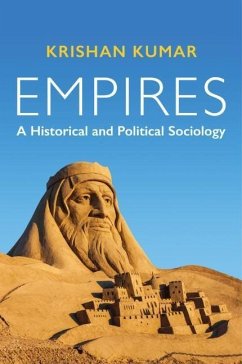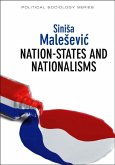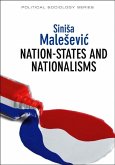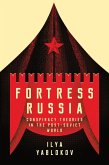Empires have been the commonest form of political organization for most of recorded history. How should we best understand them? What are their principles and how do they differ from other political forms, such as the nation-state? What sort of relations between rulers and ruled do they express? Do they, as many have held, follow a particular course of "rise, decline, and fall"? How and why do empires end, and with what consequences? Is the era of empire over?
This book explores these questions through a fascinating analysis of the major empires of world history and the present. It pays attention not just to the modern overseas empires of the Europeans, but also to the ancient empires of the Middle East and Mediterranean, the Islamic empires of the Arabs, Mughals, and Ottomans, and the two-thousand-year Chinese Empire. As Kumar shows, understanding empires helps us understand better the politics of our own times.
Hinweis: Dieser Artikel kann nur an eine deutsche Lieferadresse ausgeliefert werden.
This book explores these questions through a fascinating analysis of the major empires of world history and the present. It pays attention not just to the modern overseas empires of the Europeans, but also to the ancient empires of the Middle East and Mediterranean, the Islamic empires of the Arabs, Mughals, and Ottomans, and the two-thousand-year Chinese Empire. As Kumar shows, understanding empires helps us understand better the politics of our own times.
Hinweis: Dieser Artikel kann nur an eine deutsche Lieferadresse ausgeliefert werden.
"A marvellous book, the best available on this subject: fluent, authoritative and blessed with enormous range." John A. Hall, McGill University "An invaluable contribution to a field in which thoughtfully conceived, globe-spanning efforts remain all too few."
Times Literary Supplement
"A marvellous book, the best available on this subject: fluent, authoritative and blessed with enormous range." John A. Hall, McGill University
"Sweeping yet succinct, globe-spanning but focused, Krishan Kumar's Empires is the most comprehensive and illuminating survey we now have of the past, present, and even future of the world's longest-lasting political form. A miracle of synthesis and compression."
David Armitage, Harvard University
"This is a sharply argued book that builds on Krishan Kumar's already highly impressive oeuvre on empires and nationalism. Exploring both Western and non-Western empires, Kumar makes a bold claim: empires belong not just to the past but also, potentially, to a post-national future."
George Lawson, Australian National University
"With clarity and precision, Kumar presents an original argument built on deep and convincing historical evidence from many empires over thousands of years of human history. It should be a must read for scholars of empires."
Richard W. Lachmann, University at Albany, SUNY
Times Literary Supplement
"A marvellous book, the best available on this subject: fluent, authoritative and blessed with enormous range." John A. Hall, McGill University
"Sweeping yet succinct, globe-spanning but focused, Krishan Kumar's Empires is the most comprehensive and illuminating survey we now have of the past, present, and even future of the world's longest-lasting political form. A miracle of synthesis and compression."
David Armitage, Harvard University
"This is a sharply argued book that builds on Krishan Kumar's already highly impressive oeuvre on empires and nationalism. Exploring both Western and non-Western empires, Kumar makes a bold claim: empires belong not just to the past but also, potentially, to a post-national future."
George Lawson, Australian National University
"With clarity and precision, Kumar presents an original argument built on deep and convincing historical evidence from many empires over thousands of years of human history. It should be a must read for scholars of empires."
Richard W. Lachmann, University at Albany, SUNY








